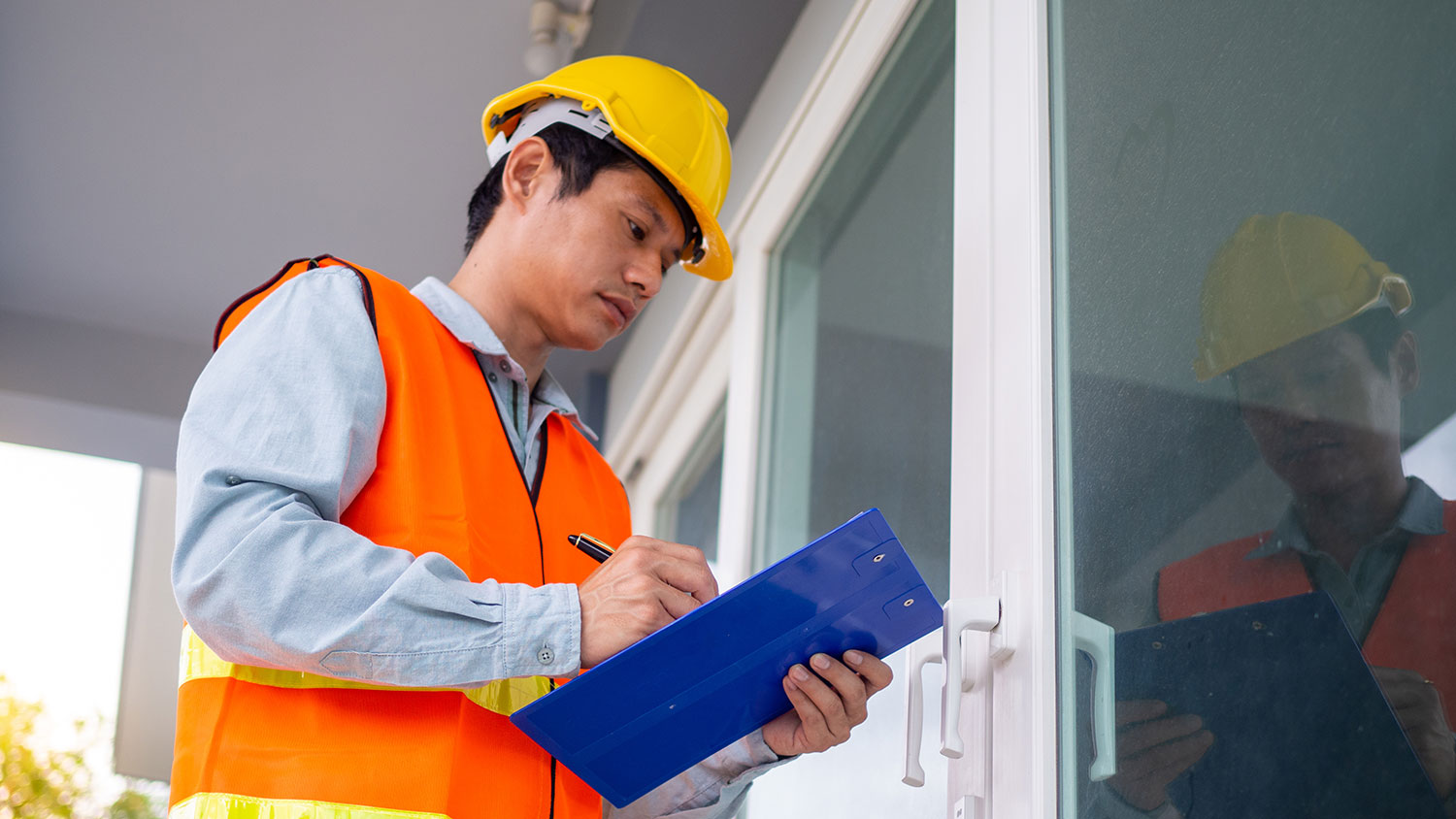
Discover the average home energy audit cost, what impacts pricing, and how to save money on your audit. Get transparent, expert-backed cost info for homeowners.
Make an empowered decision so that you don’t simply waste your energy


A typical home energy audit costs an average of $440.
An energy audit can find opportunities to reduce your home energy costs.
Home energy audits can reveal potential safety hazards, like excess carbon monoxide.
Related renovations and fixes can increase a home’s value on the market.
If uncomfortable drafts and eye-popping heating and cooling bills have become the norm in your house, it may be time to take a serious look at your home’s efficiency. A home energy audit puts the efficiency of your home under a microscope to find out where it's using more heating, cooling, and electrical power than it should be. Learn what an energy audit includes, how much it costs, and what benefits it can provide for your home.
A home energy audit is a comprehensive assessment of your home that involves a professional looking at how and when you use energy in your home. When you hire a local energy audit company, they will look at electricity consumption, heating and cooling, water usage, and many other related consumption habits related to your home efficiency. The audit concludes with a report, which provides information on your consumption and recommendations to improve efficiency.
There are three levels of home energy audits you can choose from. The American Society of Heating, Refrigerating, and Air-Conditioning Engineers (ASHRAE) dictates what each includes.
Level one: A baseline walkthrough audit that costs between $150 and $200
Level two: A detailed survey of your home's energy usage for around $200–$650
Level three: A highly in-depth audit that provides updated technology and renovation recommendations for around $650–$900
An audit at any level is a great investment, but it’s a good idea to understand what the audit entails, as well as some pros and cons of the audit, before calling in the professionals.

All home energy audits will include at least a walkthrough inspection of your home, and in most cases, your professional will need access to less trafficked areas, including crawl spaces, basements, and attics. Your expert will inspect and take notes on the following while they’re moving through your home:
Door and window insulation seals
Wall, floor, and ceiling insulation
Basement and crawl space insulation
Attic insulation
Attic ventilation
HVAC energy ratings
HVAC ductwork
Electrical wiring and lighting equipment
Appliance energy ratings
Aerators on plumbing fixtures
Thermostats and settings
Electric panel
Electric and water bills
They may also use tools to check for drafts, assess your roofing, siding, and other exterior finishes, make notes about the placement of windows and window treatments in your home, and more.
So, is a home energy audit right for you? First, you’ll have to consider the benefits the report provides and some drawbacks of having an audit done.
Thankfully, there are plenty of upsides to hiring an energy audit company near you to complete an assessment.
You get actionable advice on improving efficiency: A certified home energy auditor will pinpoint exactly where your insulation may be lacking, which appliances need upgrades, or whether it's time to install better attic ventilation. You’ll then be able to hire pros like local insulation companies to maximize efficiency and reduce your utility bills.
You should save money over time: Thanks to the resulting reduced utility bills and energy-efficient tax credits and rebates, the audit will likely pay for itself over time, especially if you have an older home that would benefit more from efficiency upgrades.
You’ll have a healthier, safer home: Energy efficiency audits can identify inefficient boilers and furnaces, which could be producing dangerous levels of carbon monoxide, as well as issues with mold, which can cause allergic reactions and make respiratory problems worse.
Your home value will likely increase: Modern upgrades that cut down a home's carbon footprint or utility costs are often desirable perks that attract buyers, and some efficiency improvements also boost curb appeal, like new energy-efficient windows or a steel front door. In both cases, you’re likely to see your home value improve.
You’ll reduce your strain on the environment: Perhaps most importantly, the improvements you make based on a home energy audit, like installing a smart thermostat, will reduce your electricity consumption and your carbon footprint.
Of course, there are some drawbacks to consider, including the up-front cost of the audit and the potentially high cost of the recommended changes.
The audit alone won’t lower costs: After paying for the audit, you’ll still need to perform the changes to your home. Depending on what recommendations your auditor makes, you might be able to spend nothing and DIY the work, or you could have to pay hundreds or even thousands of dollars to maximize your home’s efficiency.
You’ll need another audit every few years: Ventilation, HVAC, and light bulbs improve every few years; even the Energy Star standards move their markers as technology advances. To keep your home up to date, and to ensure your past improvements are still functioning as intended, you should pay for an energy audit every two to four years.
Some auditors may try to upsell: You may come across professionals linked to specific insulation products or appliances masquerading as traditional auditors. These swayed auditors will provide advice that pushes their specific project. Beware of salespeople doing more than simply suggesting trusted local companies.
Preparing for an energy audit is usually a simple task that involves minimal work on your part. There are a few things you can do, though, to ensure you get the best results and the most value for your money.
Have your utility bills handy: Your auditor will need to review your electric, water, and oil or gas bills as a part of their assessment. Make sure you have a history of at least a year for each.
Get property records if you have them: If you have documentation for your boiler or furnace, water heater, solar panels, solar batteries, windows, doors, and home appliances, have them ready to provide to your auditor. This will make their job a bit easier when it comes to the recommendations they make.
Ensure easy access to mechanicals: Make sure your attic, crawl space, basement, and utility closets are easily accessible and free of clutter. Your auditor will likely spend some time in each of these areas during their inspection.
Home energy audits are worthwhile, especially if you notice that your utility bills are increasing over time. Even if they aren’t, though, audits can help you narrow down the most energy-saving renovations on your list to save money you didn’t even know you could be saving. They also help reduce your carbon footprint and make your home more comfortable, so they’re really a win-win-win.
There are numerous energy rebates and incentives available from both energy companies and government programs. Homeowners should check with energy providers, local and state governments, and even the federal government for offers. You can also ask a contractor to take a look at your property and tell you what programs you might qualify for.
From average costs to expert advice, get all the answers you need to get your job done.

Discover the average home energy audit cost, what impacts pricing, and how to save money on your audit. Get transparent, expert-backed cost info for homeowners.

Get a detailed breakdown of thermal imaging home inspection costs, including average prices, cost factors, and tips to help homeowners budget.

Home energy audits can identify ways to make your home more energy-efficient. Learn whether an energy audit is a good investment for your home.